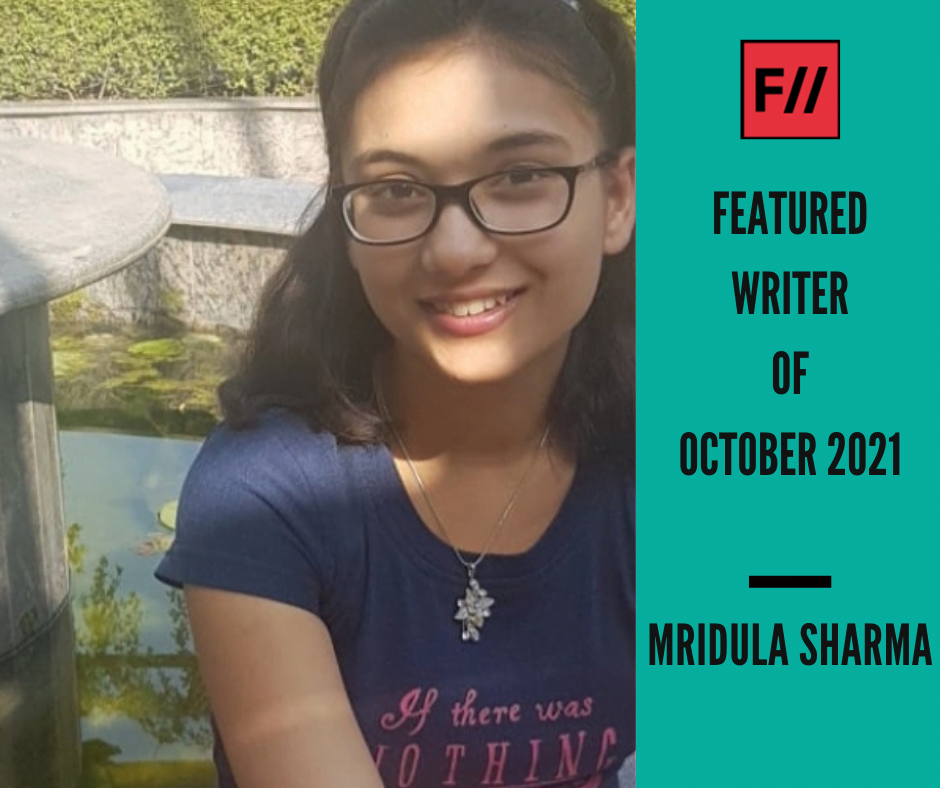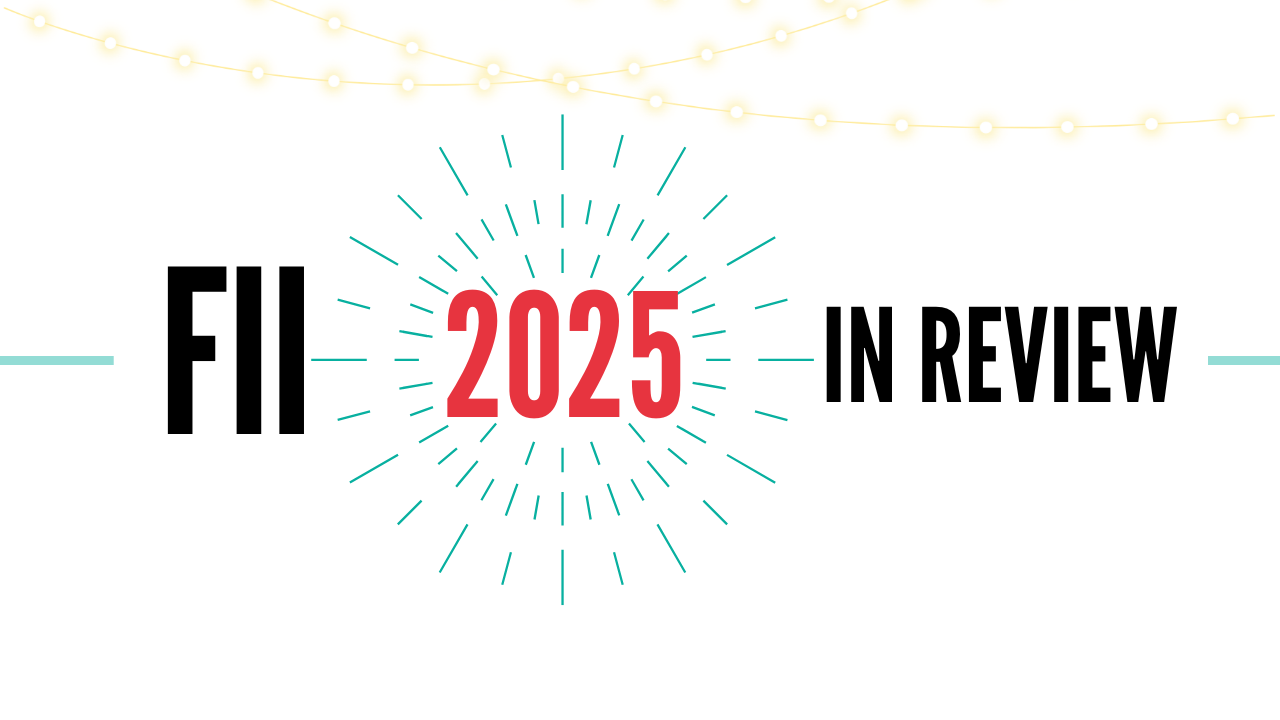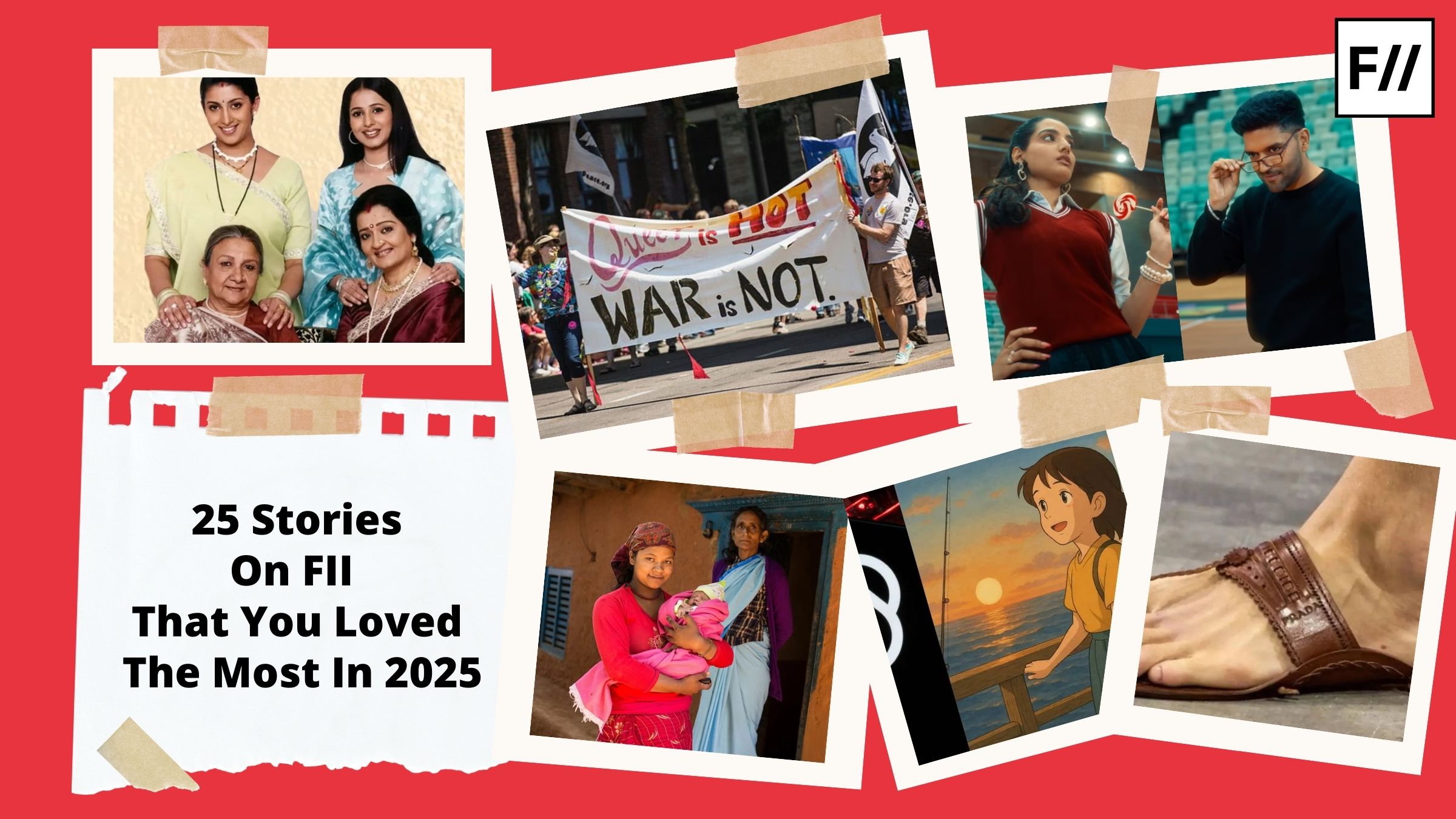We have been featuring the best writers from our writers’ community for their committed contribution to FII, making it what it is today. FII would not exist if not for the passionate and loyal feminist writers’ community that we have steadily been building over the last three years. For October 2021, we feature Mridula Sharma. Among our most enthusiastic writers, Mridula writes on a wide variety of themes, ranging from pop culture reviews, relationships, sports, politics, book reviews and what have you! Some of her popular articles include Rereading Virginia Woolf’s Ableist And Homophobic Rhetoric, ‘Why Are You Nagging Me?’: The Stereotyping Of Angry Women In Popular Culture, Revisiting The False Narrative Of The Oppression Of Cristiano Ronaldo, among others.
FII: Tell us a little about yourself and what you do.
Mridula Sharma: I am an academic researcher and a writer. My journal articles and book chapters have been accepted by publishers such as Oxford University Press, Routledge, and University of Delaware Press, among others. At present, I am working on two book projects, one of which is already under contract.
FII: How did you become a part of the FII writer family?
Mridula Sharma: My research interest in postcolonial, feminist, and Marxist scholarship gets reflected in my non-academic writing, too. By submitting my work to FII, I wanted to make a meaningful contribution to inclusive feminist futures. My first submission to the magazine examined the ableist and homophobic rhetoric in Virginia Woolf’s non-fiction, which tends to get overlooked on account of her massive influence. While Woolf’s contribution to feminist dialogues is phenomenal, we need to acknowledge the problems that her vocabulary creates. I submitted this article in January 2021, which is when I became a part of FII’s incredible community!
FII: How and when did you become a feminist? Which issues within feminism are close to your heart?
Mridula Sharma: I don’t quite remember what triggered my interest in feminism, but the process of becoming a feminist is hardly over! As an adolescent, even when I subscribed to gendered ideas of socially acceptable behaviour, I rebelled against patriarchal conventions in distinct ways. My engagement with feminist scholarship over the years has, in fact, helped me realise that a flawless feminist does not exist: unlearning is an ongoing process for all of us. My interest in feminism is rooted in intersectionality, which, when ignored, can only create problematic visions. After all, how can we have the audacity to be feminist without being inclusive in the spaces that we create and sustain? Inclusivity is central to any feminist discourse.
FII: What is your favourite piece on this site that you have written, and your favourite piece on this site that you have read? Why did they strike you?
Mridula Sharma: I thoroughly enjoyed writing, “‘Why Are You Nagging Me?’: The Stereotyping Of Angry Women In Popular Culture.” Most popular representations of the “angers” of women explicitly reinstate the stereotype that they are nagging, yet there isn’t extensive research that assesses the consequences of this dominant perception. My article was a small step to address this subject. One of the first FII articles that I read uncovered the inability of Carol Adams’ The Sexual Politics of Meat in accommodating the realities of vegetarianism in the Global South. It helped me understand the extent to which the upper caste controlled knowledge production on the politics of meat. Additionally, I also enjoyed reading the article that examined how men grounded their personal branding in superficial Marxist and feminist lexicon on digital media platforms.
P.S: I have used Lisa Feldman Barrett’s term “angers” because ‘anger’ is not a single transhistorical emotion.
FII: What do you like to do when not writing about gender and social justice?
Mridula Sharma: I enjoy reading books and painting. I get particularly excited to read remarkable work published by independent publishers. My interest in writing extends to short fiction, poetry, and personal essays. In prioritising the intersection of the private with the public in both fiction and poetry, I want to reconfigure how we view and understand the familial and social spaces that we inhabit.
FII: What do you like about FII and our work? What more would you like to see from us?
Mridula Sharma: Feminism in India is truly a wonderful space for feminists! The socio-intellectual support that the community provides is incomparable. In the future, I hope the team can prioritise in greater capacity the publication of articles on themes that escape mainstream attention. For instance, the assault that the bio-medical model of psychiatry sustains on people rarely gets discussed in contemporary debates on mental health. A sincere emphasis on what is significant rather than what is relatable is precisely what is required to make feminist dialogues more meaningful and transformative.
FII thanks Mridula for her timely and valuable contributions. We are incredibly grateful to have her as a part of our writers’ community and appreciate her for her deeply informative writing. Check out her articles here. She can be found on Instagram.
About the author(s)
Feminism In India is an award-winning digital intersectional feminist media organisation to learn, educate and develop a feminist sensibility and unravel the F-word among the youth in India.




